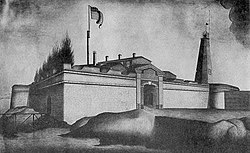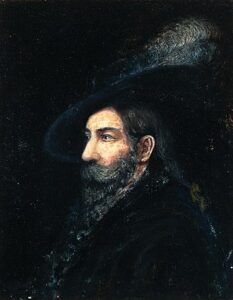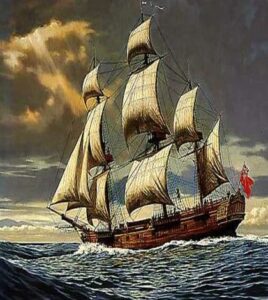Americanism Redux
January 4, your today, on the journey to the American Founding, 250 years ago, in 1774
(near the site of Mrs. Roger’s school)
Today, 250 years ago, a woman enters the turbulent marketplace of education in Philadelphia. As the most advanced and innovative larger community in the British colonies, Philadelphia is the scene of fierce competition for students and economic well-being among various schools. Mrs. Roger is opening the latest such enterprise today, advertising her new school for young women interested in improving their “Health, Morals, and Behavior.” Roger will charge tuition to help offset the costs of finding qualified instructors and making the necessary building enhancements to her Chestnut Street school. She assures potential students and parental payers that she is experienced in school management. She assures them she had operated a successful school in her former home of New York City.
The impact on Roger’s new educational business from the recent turmoil over tea in Philadelphia is difficult to predict. It could hurt her chances if local people are too upset, nervous, and focused on fundamental governmental philosophy to try out an untested school. However, her chances might be helped if she’s willing to adapt school services to meet a need for innovation and resourcefulness in challenging times. Roger must keep close watch on events resulting from the tea controversies.
* * * * * * *
(Barnstable Village Court House, Cape Cod)
The tea of Cape Cod, colony of Massachusetts, sits today in a nice, dry location. On a vessel bound for Boston, the tea had been on a ship that ran aground on the Cape. Residents had carried the cargo off the vessel and stored it for safekeeping. Talk was already circulating among colonists living on the Cape that the tea might be sold as intended to private consumers. Their plan is to inform Boston’s colonial rights leaders of their decision in a few days. Maybe.
So there are two sets of reactions waiting to unfold in coastal Massachusetts. One is the reaction from England to the tea-dumping incident. The other is the reaction of Boston’s colonial rights leaders when they learn about the actions of Cape Cod dwellers who quietly rescued the tea from a stranded British ship.
* * * * * * *
Meanwhile, in Castle William, a British fortress located on an island in Boston Bay, Benjamin Hallowell and Charles Paxton, stare out across the water. In the distance are various ships and vessels docked along the wharves extending into the bay. Behind the masts and riggings of the ships are the church steeples, gabled houses, and brick chimneys of Boston. Hallowell and Paxton are two lower-level British bureaucrats responsible for customs enforcement. Though safe now, their lives are precarious, dangling over the abyss. A local newspaper has published an account of their imperial service. The writer ridicules them for needing protection every time the subject of greater colonial rights comes up. The writer fires a warning shot toward the two officials tucked behind castle walls: “Remember, you are Voted Public Enemies by more than 30,000 of your fellow countrymen.”
(in Boston Bay)
Yes, Hallowell and Paxton are in a bad way. But it’s not just them. The two men typify an appearance of weakness among offices and officeholders linked to British imperial policy. They are VPEs—Voted Public Enemies, an ominous label when joined with the self-defined action of 30,000 people to render them so. What the castle offers in security it takes away in credibility. Where can they go to get it back?
* * * * * * *
(Anza in 1774)
Captain Juan Bautista Anza is crossing the desert with 34 people and a train of pack mules, Apache guerrillas having stolen most of the local horses. Anza’s in search of a new land route between two points in New Spain—starting in Sonora and ending in southern California. It’s rugged, tough, and unforgiving country with penetrating heat, scarce water, rock-hard surfaces, and a variety of poisonous creatures. Making the trip still worse is the unknown state of relations with local Yuma Natives. Anza’s group is crossing land where the Yuma live and hunt and they could likely be in an unhospitable mood. Anza hopes to find a guide reputed to be an expert in navigating this wilderness—he is called Sebastian Tarabal, a member of the Cochimi Native tribe in Baja and a disgruntled former occupant of a Spanish mission. Perhaps Tarabal will be able to foretell of the rivers, valleys, and mountains that stand between Anza and his destination. For leadership during this ordeal, Anza will draw upon all of his family’s lengthy military heritage in New Spain. He’ll need every ounce of inspiration, courage, and resilience he can find as the leader, whether in his ancestors or the packs on his mules.
An invisible string trails behind Anza’s group as it moves across the desert. It’s the string of a bond, of connection, the material for tying together different parts of an imperial community. They are traveling to make a point, that a route can be followed from part to part to make a whole. At some time, though, the binding nature of the path will mean less than the people, items, and ideas carried upon it. That’s when some version of tea may appear and with it, the bonds will stretch toward a break.
Also
Today, 250 years ago, Captain James Cook continues his search in the southern Pacific Ocean for the Great Southern Land. Aboard the Endeavour, Cook and his crew are a floating community.
(Endeavour)
Cook feels the vicious wind cut through him on the decks of Endeavour. Pellets of snow beat against his face as he wipes his eyes to see the endless string of ice-formed islands. The sea air is frigid. Ropes on the ship are frozen.
A few men in Cook’s floating community are sick. Others are ill-tempered; two of them have fought with knives and one takes a dozen lashes from a whip as punishment. He’s tied to the main mast. The leather slices through cold air into warm skin.
Cook worries over his crew’s outlook and attitude. He senses despair in every bunk, resentment behind every barrel. No one wants to endure another winter like this in the vicinity of the Horn.
One of Cook’s officers hopes they must find a large land mass soon. “A small island at such a distance from Great Britain can be of no use and consequently of no consequence to this Great Nation.”
And the consequence of the consequence’s consequence is that no tea will ever see these places, no sign of empire visible on the islands of ice.
For You Now
Mrs. Morgan needs your advice: what should I look for in my new venture? How should I plan for my new business’s first year in my new community of Philadelphia?
What do you tell her?
A new year has dawned. A major event has occurred. And the effects, reactions, and blowback from the major event are yet to be seen, though they’re out there, somewhere, in the part of the River called Future, Down River.
Maybe that paragraph fits you, too.
You and I can stand with her in her own year of 1774 and consider the question. The folks on Cape Cod seem to be thinking that they won’t be found out or, if they are, it won’t matter somehow. Perhaps that’s the normal outlook when you live in an assumed state of isolation and removal all the way out on the Cape. The two gentlemen in Boston Bay’s Castle William share that sense with Cape folk; they’re insulated by the stone walls. And then there’s Captain Anza who is plunging straight through a land of isolation on the single hope that he’ll meet the person who knows the way forward as well as the way out. But what if Anza can’t find his guide? What then?
You and I can see backward from our own year of 2024, fresh on the calendar’s first page though knowing that out there, later on in the later pages, other events lurk. One is political, governmental, and, we suppose, fundamental—the election. Unlike Mrs. Morgan’s year of 1774, we have the printed date to anticipate. Indeed, it’s more than anticipation in that we have clear-cut moments between now and then that are also part of this passage of time in 2024. It’s a steady and loud drumbeat, banging, and clanging of other dates and other events that all flow into the end of this year. We’ll feel as if we hear—and see—nothing else. You’ll need to live, and lead, in this environment.
What can you tell Mrs. Morgan from the thoughts that are right now forming in your mind?
Suggestion
Take a moment to consider: how do you stay focused and stay committed to moving forward in the middle of loud sounds and flashing lights?
(Your River)














